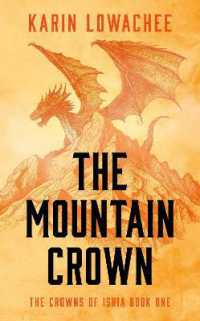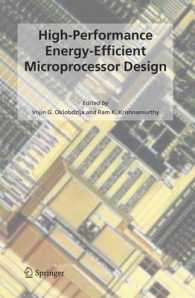- ホーム
- > 洋書
- > 英文書
- > Philosophy
Full Description
Political meritocrats believe political power should be allocated according to virtue and competence. It is an old idea, going back at least to Plato. But what is old is new again, as several political philosophers have recently proposed and defended novel articulations of this ancient idea. The purpose of this short monograph is to offer a critical overview of this literature. I cover three schools of thought. I first look at epistocracy, a form of government identical to modern liberal democracies, except voting power is allocated to citizens according to competence. I then turn to Confucian meritocracy, where more blatantly nondemocratic forms of political meritocracy are defended. I finally look at democratic meritocracy, which is the idea that elections either do or could (if they were appropriately reformed) select virtuous and competent leaders. I end by offering reasons to think the entire enterprise of political meritocracy rests on a mistake.
Contents
1. Introduction; 2. What is Epistocracy?; 3. Why Epistocracy?; 4. Objections to Epistocracy; 5. What is Confucian Meritocracy?; 6. Confucian Institutional Design; 7. Why Confucian Meritocracy?; 8. Objections to Confucian Meritocracy; 9. Democratic Meritocracy; 10. Is Democracy Meritocratic?; 11. Improving Democracy's Meritocratic Credentials; 12. Does Political Meritocracy Rest on a Mistake; References.
-

- DVD
- 中国の世界遺産
-

- DVD
- COMBAT! BATTLE4





